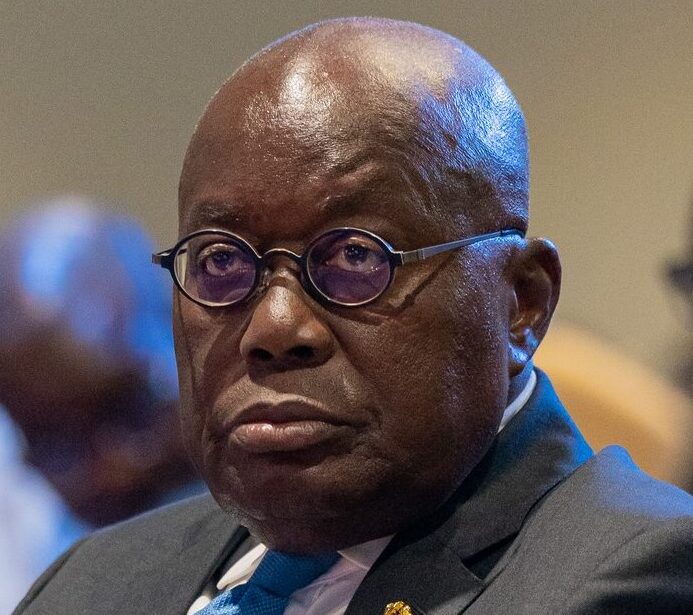Former Ghanaian President Nana Akufo-Addo described the debt restructuring that dominated his second term as ‘one of the darkest and most painful episodes’ of his presidency as he made a pitch for a new debt relief programme in Brussels last week.
African leaders are set to put debt relief high on the agenda at a European Union-African Union summit in Angola in November.
In a speech at a thinktank in Brussels on 1 October, Akufo-Addo called for European support for ‘a new global debt relief initiative – ambitious, equitable and tailored to our realities’, adding that a debt forgiveness programme should be targeted ‘to unlock resources for development’.
That should be ‘a programme of “Debt Relief for Green Investment and Resilience” – linking debt cancellation directly to investments in climate adaptation and sustainable growth,’ he said.
A handful of EU countries, including Italy and Spain, have signalled their support for debt swaps where debt can be written off in exchange for investment in climate and environmental protection.
Akufo-Addo, who stood down as Ghana’s president last December, piloted his country through a US$13 billion debt restructuring as part of the G20 Common Framework in 2023, that also secured $10.5bn in external debt service relief through 2026.
The deal reduced Ghana’s debt-to-GDP ratio from around 85% to 70.5%, and secured a loan from the International Monetary Fund.
But Akufo-Addo said that the debt deal had ‘shattered’ the lives and livelihoods of millions of Ghanaians, particularly young people, pensioners and small investors
‘Every dollar diverted to creditors is a dollar taken from a hospital, from a child’s vaccination, from a community’s future. This is not economics, it is inequity,’ said Akufo-Addo, pointing out that more than 30 African countries currently spend more on debt interest than healthcare .
The remarks reflect the growing frustration among African leaders that they are treated unfairly by credit rating agencies and the bond markets, making the cost of servicing their debts far higher than wealthy states.
The African Union – at the behest of the continent’s leaders – is hoping to establish an in-house credit rating agency, in part to expose the risk premiums offered by the likes of Standard & Poor’s, Moody’s and Fitch.
Debt-to-GDP ratios across African countries average around 60-70%, significantly lower than the 111% average among the G7 group of wealthy countries. But the interest rates on African debt are far more punitive.
Source: Africa Confidential




